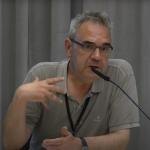To deepen partnerships with democratic countries in the South, Western democracies will have to rally behind their demand for a greater say in the UN Security Council, the IMF, and the World Bank. Saving these institutions from Trump's wrecking ball will require broad coalitions anyway.
It is even more important to avoid double standards. The limp response of many European governments – including neo-idealists – to Israel's genocidal violence in Gaza has undermined their credibility in the South. Do the lives of Ukrainians matter more than those of Arabs? This selective approach to international and humanitarian law makes it easier for southern governments to look away from Russian imperialism and cosy up to Putin. European double standards, therefore, harm the country that neo-idealists care so much about: Ukraine.
In a world facing not only geopolitical but also ecological crises, we cannot always avoid cooperating with autocracies. China, for example, is an indispensable partner in the fight against climate change – especially now that Trump is once again stepping out of the Paris Agreement. Competing values sometimes force trade-offs, yet neo-idealism can guide our approach to autocracies in the Global South. It challenges us to look beyond governments. Even in countries ruled by dictators, there are many people who yearn for democracy. How can we amplify their voices? And if it comes to a democratic breakthrough, how do we help democratic institutions take root?
We need to see democracy promotion as part of security policy, especially since democracy offers the best chances for peace and a sustainable future. This insight should permeate the trade and development policies of the EU and its member states. If we need to import green hydrogen from solar- or wind-rich countries to decarbonise our heavy industry, do we go into business with autocratic Saudi Arabia or democratic Namibia?
Hopeful future
A crucial element of neo-idealism, according to Tallis, is the ‘right to a hopeful future’. Democracies must prove both their material and moral superiority to win the systemic competition with autocracies. But is the promise of material progress still tenable in an era of ecological disruption?
A growing number of climate and environmental scientists warn us that continued economic growth in rich countries cannot be reconciled with a liveable Earth. If ecology retaliates so strongly against the economy that GDP growth grinds to a halt, the resilience of democracies will be tested even more severely than now. Could a ‘hopeful future’ also mean growing our well-being rather than our economy?
That thought finds support from Tomas Tomilinas, a member of the Lithuanian parliament and co-founder of the progressive-green party Union of Democrats for Lithuania, a junior partner of the country’s ruling coalition. “Because we have focused too much on material things, we no longer know who we are and what we defend. I see neo-idealism as a means to reconnect Europe on the basis of values and to rebuild a common narrative. The war in Europe makes it necessary to return to a romantic understanding of our European identity and provides an opportunity to do so.”
Teun Janssen of Volt points out that Trump too harks back to a romantic notion from the past. The term ‘manifest destiny’ in his inauguration speech refers to the 19th-century idea that the US is destined by God to enlarge its territory. By tapping into this expansionist and white supremacist tradition, Trump manages to sell his annexation plans to the isolationist MAGA crowd.



